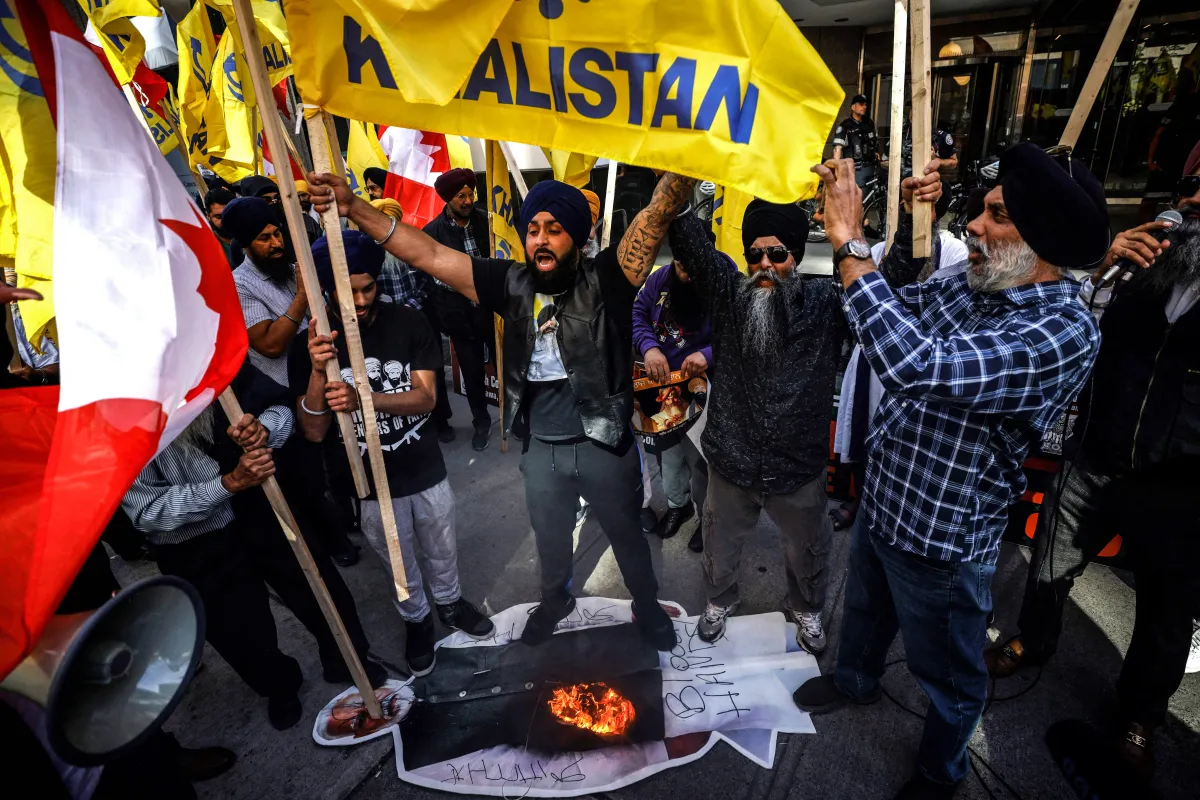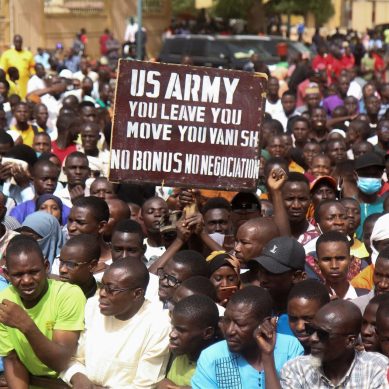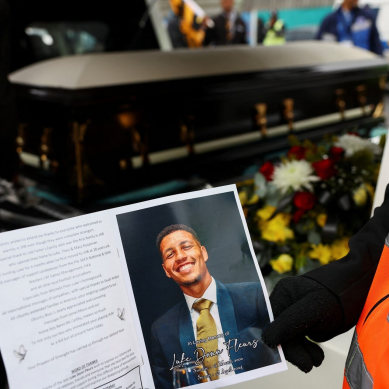
The Indian government’s targeting of Sikh diaspora activists made global headlines with the brazen killing of Canadian citizen Hardeep Singh Nijjar, who was shot to death in a hail of bullets outside a Sikh temple near Vancouver in June.
Canadian Prime Minister Justin Trudeau publicly accused the Indian government of involvement in the gangland-style murder, leading to an ongoing diplomatic crisis.
In the months since Trudeau’s accusation, more details on what appears to be a broad-based Indian targeted killing campaign have become public, including the US Justice Department indictment alleging that Indian intelligence agents also tried to assassinate Gurpatwant Singh Pannun, the New York-based American citizen and counsel for Sikhs for Justice. The assassination plot targeting Pannun was thwarted, a prosecutor in the Southern District of New York said, when a person working at the behest of the Indian government hired an undercover Drug Enforcement Administration agent to carry out the killing.
The indictment against Nikhil Gupta – an Indian national working with Indian officials to kill Pannun – who has a background in organised crime, includes statements alleging that more people in the US were intended targets. According to documents from the case, Gupta, the 52-year-old suspect who is described in court documents as working in close cooperation with intelligence handlers in India, told the undercover DEA operative that India had “so many targets,” including individuals in New York and California, promising “more jobs, more jobs” to the hitman after Pannun was killed.
Sikh diaspora activists have alleged Indian government involvement in the mysterious deaths of other dissidents, including, most recently, a 35-year-old British citizen named Avtar Singh Khanda, who died this year in what his family claims to be a case of poisoning. Khanda had reportedly been harassed and threatened by Indian intelligence in the lead up to his death in a British hospital just days before Nijjar’s murder. The Intercept reported this September that the FBI had also visited Sikh-American activists after the Nijjar’s murder to warn them of intelligence showing that they were at risk of assassination.
An assassination campaign against diaspora Sikh dissidents also appears to be underway in countries outside the West. A Sikh activist in Pakistan named Lakhbir Singh Rode, along with another unnamed dissident, were reportedly targets, according to classified Pakistani intelligence documents previously reported by The Intercept. The Pakistani documents said Rode and the other activist were being surveilled and deemed to be at imminent risk of assassination by India’s Research and Analysis Wing. (Rode reportedly died in early December, with press accounts attributing his passing to illness.) At least two other Sikh dissidents in Pakistan have been killed in recent years. According to Pakistani intelligence assessments, “anti-state activists and local criminal networks” working under the direction of RAW were behind the plots and planned to commit more killings of both Sikh and Kashmiri separatists based in Pakistan.
While India has a hostile relationship with Pakistan spanning decades, the revelation that Indian officials have been carrying out offensive intelligence operations in friendly Western countries has become a source of embarrassment for the Indian government. India responded to accusations by Canada that it assassinated Nijjar by halting visa service for Canadians and accusing Canada of acting as a safe harbour for terrorists. In public pronouncements toward the US since the revelation of its alleged involvement in the targeting of Pannun, India has been more conciliatory, promising to conduct an internal inquiry to discover the facts behind the case.
The Indian Ministry of External Affairs document obtained by The Intercept expresses considerable alarm about the growing influence of Sikh diaspora movements in the West. Several prominent Sikh politicians in Western countries have a tense or hostile relationship with India, including Jagmeet Singh, a Canadian parliamentarian and major opposition party leader who was barred from entry to India in 2014 over public comments about its human rights record.
“There are about 1 million Sikhs in North America alone,” the Indian memo says. “The growing anti-India activities and propaganda by pro-Khalistan elements are of great concern for India.” The document goes on to say that members of diaspora Sikh organisations have “penetrated the mainstream politics in the US and Canada,” and are working to “manipulate the countries’ policy towards India.”
In addition to calling for a targeted crackdown on Sikh diaspora organisations, the memo advises Indian authorities based in the West to build closer relationships with local law enforcement agencies and “think tanks,” while monitoring Sikh activists own contacts with government officials. The memo also calls for the recruitment of the Indian diaspora in this campaign. “Indian diaspora needs to be mobilized,” it reads, suggesting outreach to a number of low-profile groups.
“These organisations could be cultivated as vital force in the street confrontation with Sikh extremists,” it says. “Special efforts should be paid to establish cooperation with moderate Sikhs, so as to integrate the neutral Sikh community.”
The fallout from Nijjar’s killing and the attempted murder of Pannun continues to impact Indian ties with Western countries. According to Indian press reports, the US, Canadian, and British governments reportedly expelled senior RAW officials working at Indian consular offices in response to Nijjar’s assassination, with the US blocking India from replacing its station chief in Washington. The moves have left RAW with no official footprint in North America for the first time since its founding in 1968.
“The chilling effect on speech that Sikhs are experiencing today is real. Some people who would otherwise speak out against [Indian Prime Minister Narendra] Modi are nervous, some who would otherwise organise and protest over the recent foiled assassination plot are staying home for fear that they themselves could be surveilled, harassed, or experience violence of some kind,” said Arjun Sethi, a human rights lawyer and law professor at Georgetown University. “Many Sikhs left India seeking to seek refuge in North America, and it is unacceptable that some of those same people now fear that the India government could target them on Canadian or American soil.”
“Sikhs who speak out for Khalistan, which today is a political movement, who speak out to criticize India, or who speak out generally, could be caught up in the crossfire.”
- The Intercept report











